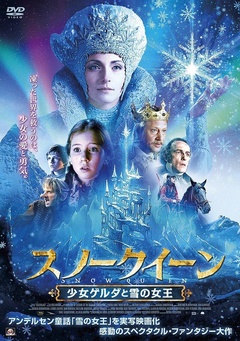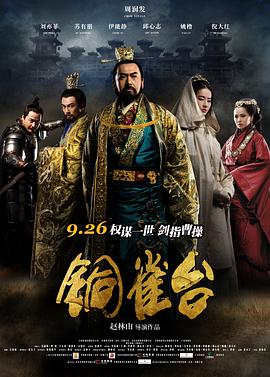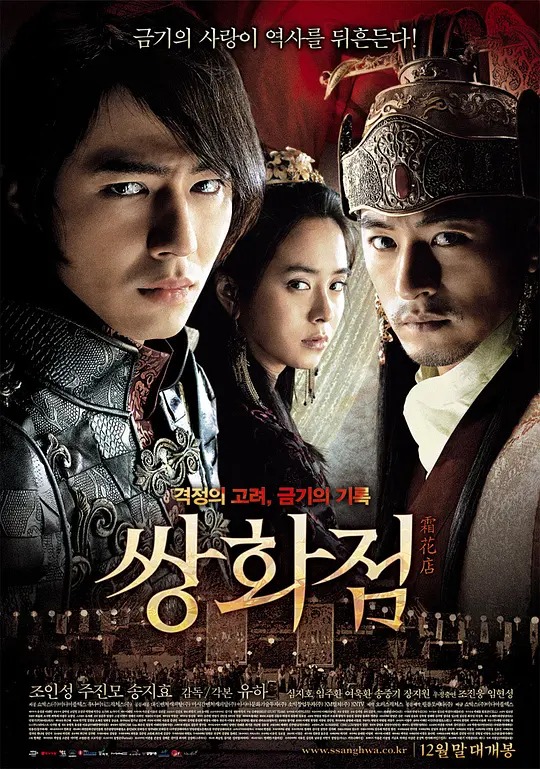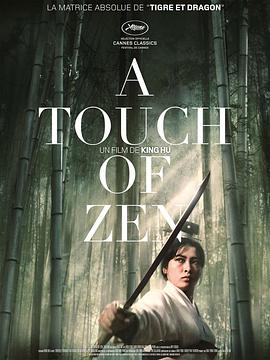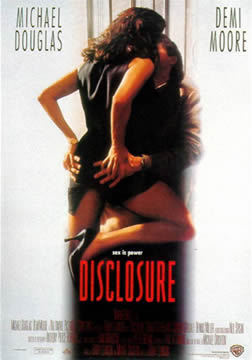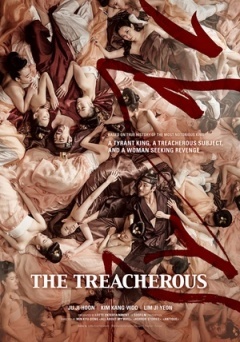- 西瓜云2
- 西瓜云1
- 正片
- HD
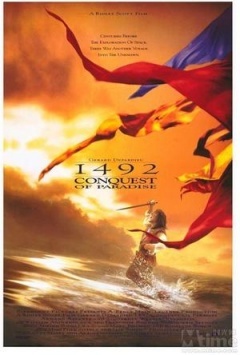
哥伦布传
- 主演:
- 西格妮·韦弗,弗兰克·兰格拉,约翰·赫夫南,热拉尔·德帕迪约,凯文·杜恩,安赫拉·莫利纳,切基·卡尤,阿曼德·阿山特,马克·马戈利斯,迈克尔·维克特,史蒂芬·威丁顿,阿诺德·沃斯洛,杰克·泰勒,胡安·迭戈·博托,费尔南多·古林·库弗,劳恩·迪恩,Billy·L.·Sullivan,卡里奥·塞勒姆,Achero·Mañas,费尔南多·雷伊
- 备注:
- HD
- 类型:
- 剧情片
- 导演:
- 雷德利·斯科特
- 年代:
- 1992
- 地区:
- 法国,西班牙
- 语言:
- 英语
- 更新:
- 2023-01-30 10:18
- 简介:
- 500年前,充满迷信色彩的西班牙,认为海洋的尽头有魔鬼守侯著,只有航海家哥伦布坚信,海洋的尽头是一片新土地,几经辛苦说服女皇资助冒险旅程的他终于发现新大陆,可惜贵族们都视这土地为猪肉,只有他愿意维持乐土的自然纯朴,终被奸人排拆,究竟现实与梦想的距离,会否动摇这位梦想家.....详细
500年前,充满迷信色彩的西班牙,认为海洋的尽头有魔鬼守侯著,只有航海家哥伦布坚信,海洋的尽头是一片新土地,几经辛苦说服女皇资助冒险旅程的他终于发现新大陆,可惜贵族们都视这土地为猪肉,只有他愿意维持乐土的自然纯朴,终被奸人排拆,究竟现实与梦想的距离,会否动摇这位梦想家的坚持呢?-幕后花絮影片描写的是著名航海家哥伦布的航海故事,重点刻画的是哥伦布的社会性。以其子费尔南多的回忆的形式,对其颠沛流离的一生进行了追述。通过影片我们可以看到,作为一名航海冒险家,哥伦布绝对是成功的伟人;但若将他视作一个普通人,他又是一个可叹的失败者。影片生动地再现了哥伦布丰富多彩的社会生活经历,他那富有理想的心智和勇敢无畏的精神,还有那粗暴蛮横的坏脾气和贪婪攫取的性格。
Alex Gendler: History vs. Christopher Columbus
Many people in the United States and Latin America have grown up celebrating the anniversary of Christopher Columbus's voyage, but was he an intrepid explorer who brought two worlds together or a ruthless exploiter who brought colonialism and slavery? And did he even discover America at all? It's time to put Columbus on the stand in History vs. Christopher Columbus. "Order, order in the court. Wait, am I even supposed to be at work today?" <i>Cough</i> "Yes, your Honor. From 1792, Columbus Day was celebrated in many parts of the United States on October 12th, the actual anniversary date. But although it was declared an official holiday in 1934, individual states aren't required to observe it. Only 23 states close public services, and more states are moving away from it completely." <i>Cough</i> "What a pity. In the 70s, we even moved it to the second Monday in October so people could get a nice three-day weekend, but I guess you folks just hate celebrations." "Uh, what are we celebrating again?" "Come on, Your Honor, we all learned it in school. Christopher Columbus convinced the King of Spain to send him on a mission to find a better trade route to India, not by going East over land but sailing West around the globe. Everyone said it was crazy because they still thought the world was flat, but he knew better. And when in 1492 he sailed the ocean blue, he found something better than India: a whole new continent." "What rubbish. First of all, educated people knew the world was round since Aristotle. Secondly, Columbus didn't discover anything. There were already people living here for millennia. And he wasn't even the first European to visit. The Norse had settled Newfoundland almost 500 years before." "You don't say, so how come we're not all wearing those cow helmets?" "Actually, they didn't really wear those either." <i>Cough</i> "Who cares what some Vikings did way back when? Those settlements didn't last, but Columbus's did. And the news he brought back to Europe spread far and wide, inspiring all the explorers and settlers who came after. Without him, none of us would be here today." "And because of him, millions of Native Americans aren't here today. Do you know what Columbus did in the colonies he founded? He took the very first natives he met prisoner and wrote in his journal about how easily he could conquer and enslave all of them." "Oh, come on. Everyone was fighting each other back then. Didn't the natives even tell Columbus about other tribes raiding and taking captives?" "Yes, but tribal warfare was sporadic and limited. It certainly didn't wipe out 90% of the population." "Hmm. Why is celebrating this Columbus so important to you, anyway?" "Your Honor, Columbus's voyage was an inspiration to struggling people all across Europe, symbolizing freedom and new beginnings. And his discovery gave our grandparents and great-grandparents the chance to come here and build better lives for their children. Don't we deserve a hero to remind everyone that our country was build on the struggles of immigrants?" "And what about the struggles of Native Americans who were nearly wiped out and forced into reservations and whose descendants still suffer from poverty and discrimination? How can you make a hero out of a man who caused so much suffering?" "That's history. You can't judge a guy in the 15th century by modern standards. People back then even thought spreading Christianity and civilization across the world was a moral duty." "Actually, he was pretty bad, even by old standards. While governing Hispaniola, he tortured and mutilated natives who didn't bring him enough gold and sold girls as young as nine into sexual slavery, and he was brutal even to the other colonists he ruled, to the point that he was removed from power and thrown in jail. When the missionary, Bartolomé de las Casas, visited the island, he wrote, 'From 1494 to 1508, over 3,000,000 people had perished from war, slavery and the mines. Who in future generations will believe this?'" "Well, I'm not sure I believe those numbers." "Say, aren't there other ways the holiday is celebrated?" "In some Latin American countries, they celebrate the same date under different names, such as Día de la Raza. In these places, it's more a celebration of the native and mixed cultures that survived through the colonial period. Some places in the U.S. have also renamed the holiday, as Native American Day or Indigenous People's Day and changed the celebrations accordingly." "So, why not just change the name if it's such a problem?" "Because it's tradition. Ordinary people need their heroes and their founding myths. Can't we just keep celebrating the way we've been doing for a century, without having to delve into all this serious research? It's not like anyone is actually celebrating genocide." "Traditions change, and the way we choose to keep them alive says a lot about our values." "Well, it looks like giving tired judges a day off isn't one of those values, anyway." Traditions and holidays are important to all cultures, but a hero in one era may become a villain in the next as our historical knowledge expands and our values evolve. And deciding what these traditions should mean today is a major part of putting history on trial. "<>"" && "
Alex Gendler: History vs. Christopher Columbus
Many people in the United States and Latin America have grown up celebrating the anniversary of Christopher Columbus's voyage, but was he an intrepid explorer who brought two worlds together or a ruthless exploiter who brought colonialism and slavery? And did he even discover America at all? It's time to put Columbus on the stand in History vs. Christopher Columbus. "Order, order in the court. Wait, am I even supposed to be at work today?" <i>Cough</i> "Yes, your Honor. From 1792, Columbus Day was celebrated in many parts of the United States on October 12th, the actual anniversary date. But although it was declared an official holiday in 1934, individual states aren't required to observe it. Only 23 states close public services, and more states are moving away from it completely." <i>Cough</i> "What a pity. In the 70s, we even moved it to the second Monday in October so people could get a nice three-day weekend, but I guess you folks just hate celebrations." "Uh, what are we celebrating again?" "Come on, Your Honor, we all learned it in school. Christopher Columbus convinced the King of Spain to send him on a mission to find a better trade route to India, not by going East over land but sailing West around the globe. Everyone said it was crazy because they still thought the world was flat, but he knew better. And when in 1492 he sailed the ocean blue, he found something better than India: a whole new continent." "What rubbish. First of all, educated people knew the world was round since Aristotle. Secondly, Columbus didn't discover anything. There were already people living here for millennia. And he wasn't even the first European to visit. The Norse had settled Newfoundland almost 500 years before." "You don't say, so how come we're not all wearing those cow helmets?" "Actually, they didn't really wear those either." <i>Cough</i> "Who cares what some Vikings did way back when? Those settlements didn't last, but Columbus's did. And the news he brought back to Europe spread far and wide, inspiring all the explorers and settlers who came after. Without him, none of us would be here today." "And because of him, millions of Native Americans aren't here today. Do you know what Columbus did in the colonies he founded? He took the very first natives he met prisoner and wrote in his journal about how easily he could conquer and enslave all of them." "Oh, come on. Everyone was fighting each other back then. Didn't the natives even tell Columbus about other tribes raiding and taking captives?" "Yes, but tribal warfare was sporadic and limited. It certainly didn't wipe out 90% of the population." "Hmm. Why is celebrating this Columbus so important to you, anyway?" "Your Honor, Columbus's voyage was an inspiration to struggling people all across Europe, symbolizing freedom and new beginnings. And his discovery gave our grandparents and great-grandparents the chance to come here and build better lives for their children. Don't we deserve a hero to remind everyone that our country was build on the struggles of immigrants?" "And what about the struggles of Native Americans who were nearly wiped out and forced into reservations and whose descendants still suffer from poverty and discrimination? How can you make a hero out of a man who caused so much suffering?" "That's history. You can't judge a guy in the 15th century by modern standards. People back then even thought spreading Christianity and civilization across the world was a moral duty." "Actually, he was pretty bad, even by old standards. While governing Hispaniola, he tortured and mutilated natives who didn't bring him enough gold and sold girls as young as nine into sexual slavery, and he was brutal even to the other colonists he ruled, to the point that he was removed from power and thrown in jail. When the missionary, Bartolomé de las Casas, visited the island, he wrote, 'From 1494 to 1508, over 3,000,000 people had perished from war, slavery and the mines. Who in future generations will believe this?'" "Well, I'm not sure I believe those numbers." "Say, aren't there other ways the holiday is celebrated?" "In some Latin American countries, they celebrate the same date under different names, such as Día de la Raza. In these places, it's more a celebration of the native and mixed cultures that survived through the colonial period. Some places in the U.S. have also renamed the holiday, as Native American Day or Indigenous People's Day and changed the celebrations accordingly." "So, why not just change the name if it's such a problem?" "Because it's tradition. Ordinary people need their heroes and their founding myths. Can't we just keep celebrating the way we've been doing for a century, without having to delve into all this serious research? It's not like anyone is actually celebrating genocide." "Traditions change, and the way we choose to keep them alive says a lot about our values." "Well, it looks like giving tired judges a day off isn't one of those values, anyway." Traditions and holidays are important to all cultures, but a hero in one era may become a villain in the next as our historical knowledge expands and our values evolve. And deciding what these traditions should mean today is a major part of putting history on trial. "<>"暂时没有网友评论该影片"}
Alex Gendler: History vs. Christopher Columbus
Many people in the United States and Latin America have grown up celebrating the anniversary of Christopher Columbus's voyage, but was he an intrepid explorer who brought two worlds together or a ruthless exploiter who brought colonialism and slavery? And did he even discover America at all? It's time to put Columbus on the stand in History vs. Christopher Columbus. "Order, order in the court. Wait, am I even supposed to be at work today?" <i>Cough</i> "Yes, your Honor. From 1792, Columbus Day was celebrated in many parts of the United States on October 12th, the actual anniversary date. But although it was declared an official holiday in 1934, individual states aren't required to observe it. Only 23 states close public services, and more states are moving away from it completely." <i>Cough</i> "What a pity. In the 70s, we even moved it to the second Monday in October so people could get a nice three-day weekend, but I guess you folks just hate celebrations." "Uh, what are we celebrating again?" "Come on, Your Honor, we all learned it in school. Christopher Columbus convinced the King of Spain to send him on a mission to find a better trade route to India, not by going East over land but sailing West around the globe. Everyone said it was crazy because they still thought the world was flat, but he knew better. And when in 1492 he sailed the ocean blue, he found something better than India: a whole new continent." "What rubbish. First of all, educated people knew the world was round since Aristotle. Secondly, Columbus didn't discover anything. There were already people living here for millennia. And he wasn't even the first European to visit. The Norse had settled Newfoundland almost 500 years before." "You don't say, so how come we're not all wearing those cow helmets?" "Actually, they didn't really wear those either." <i>Cough</i> "Who cares what some Vikings did way back when? Those settlements didn't last, but Columbus's did. And the news he brought back to Europe spread far and wide, inspiring all the explorers and settlers who came after. Without him, none of us would be here today." "And because of him, millions of Native Americans aren't here today. Do you know what Columbus did in the colonies he founded? He took the very first natives he met prisoner and wrote in his journal about how easily he could conquer and enslave all of them." "Oh, come on. Everyone was fighting each other back then. Didn't the natives even tell Columbus about other tribes raiding and taking captives?" "Yes, but tribal warfare was sporadic and limited. It certainly didn't wipe out 90% of the population." "Hmm. Why is celebrating this Columbus so important to you, anyway?" "Your Honor, Columbus's voyage was an inspiration to struggling people all across Europe, symbolizing freedom and new beginnings. And his discovery gave our grandparents and great-grandparents the chance to come here and build better lives for their children. Don't we deserve a hero to remind everyone that our country was build on the struggles of immigrants?" "And what about the struggles of Native Americans who were nearly wiped out and forced into reservations and whose descendants still suffer from poverty and discrimination? How can you make a hero out of a man who caused so much suffering?" "That's history. You can't judge a guy in the 15th century by modern standards. People back then even thought spreading Christianity and civilization across the world was a moral duty." "Actually, he was pretty bad, even by old standards. While governing Hispaniola, he tortured and mutilated natives who didn't bring him enough gold and sold girls as young as nine into sexual slavery, and he was brutal even to the other colonists he ruled, to the point that he was removed from power and thrown in jail. When the missionary, Bartolomé de las Casas, visited the island, he wrote, 'From 1494 to 1508, over 3,000,000 people had perished from war, slavery and the mines. Who in future generations will believe this?'" "Well, I'm not sure I believe those numbers." "Say, aren't there other ways the holiday is celebrated?" "In some Latin American countries, they celebrate the same date under different names, such as Día de la Raza. In these places, it's more a celebration of the native and mixed cultures that survived through the colonial period. Some places in the U.S. have also renamed the holiday, as Native American Day or Indigenous People's Day and changed the celebrations accordingly." "So, why not just change the name if it's such a problem?" "Because it's tradition. Ordinary people need their heroes and their founding myths. Can't we just keep celebrating the way we've been doing for a century, without having to delve into all this serious research? It's not like anyone is actually celebrating genocide." "Traditions change, and the way we choose to keep them alive says a lot about our values." "Well, it looks like giving tired judges a day off isn't one of those values, anyway." Traditions and holidays are important to all cultures, but a hero in one era may become a villain in the next as our historical knowledge expands and our values evolve. And deciding what these traditions should mean today is a major part of putting history on trial.



